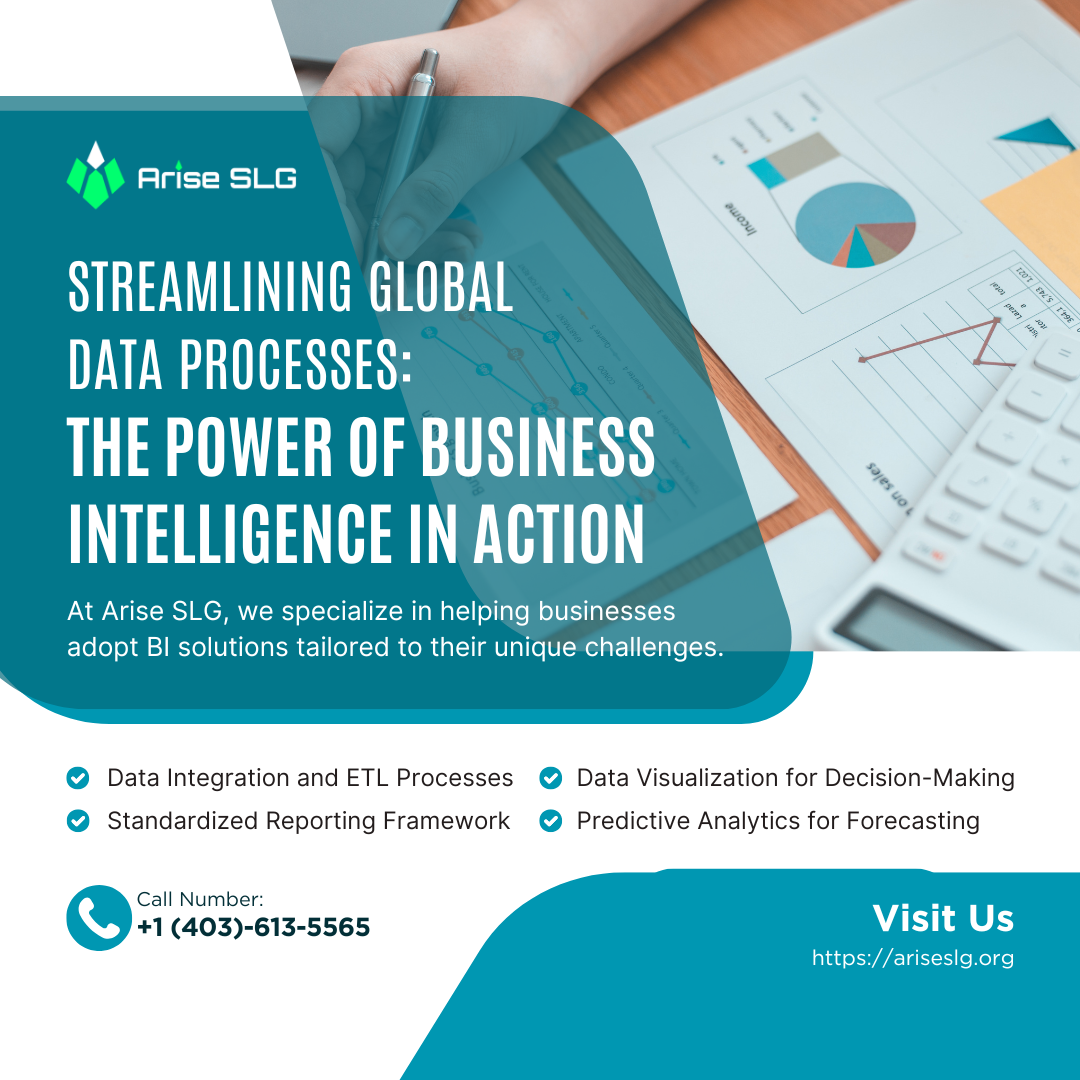In today’s interconnected world, global companies are inundated with data from various sources—spanning geographies, markets, and platforms. Managing this vast volume of structured and unstructured data can be a daunting task. However, organizations that harness the power of Business Intelligence (BI) can transform this challenge into an opportunity.
This article explores how a multinational corporation utilized BI tools to streamline its data processes, ensuring agility, accuracy, and actionable insights across its operations.
The Challenge: Fragmented Data Ecosystem
Consider a global retail company with operations in over 50 countries. Its data sources included:
- Point-of-Sale Systems (POS): Thousands of retail outlets generating sales data in real time.
- E-commerce Platforms: Online purchase data varying by region and platform.
- Supply Chain Systems: Tracking inventory, shipping, and warehouse metrics.
- Market Data: Regional economic trends, competitor pricing, and customer demographics.
These data streams were stored across siloed systems—some using structured formats like databases and spreadsheets, while others relied on unstructured sources such as email reports, social media analytics, and market research PDFs. This fragmentation made it nearly impossible to gain a unified view of operations, resulting in:
- Redundant data entry across teams.
- Inconsistent reporting metrics between regions.
- Delayed decision-making due to time-intensive data reconciliation
The Solution: Business Intelligence Implementation
To address these challenges, the company adopted a BI-driven approach, leveraging tools like Power BI and Tableau to centralize and streamline data processes. Key steps included:
- Data Integration and ETL Processes
Using Extract, Transform, Load (ETL) pipelines, data from disparate sources were aggregated into a central data warehouse.
- Structured data (e.g., sales figures) was seamlessly imported from databases.
- Unstructured data (e.g., social media sentiment) was processed using natural language processing (NLP) algorithms.
- APIs were deployed to integrate real-time data from cloud-based platforms.
- Standardized Reporting Framework
The BI team created standardized dashboards accessible across regions, ensuring consistent metrics for:
- Sales performance.
- Inventory levels.
- Customer satisfaction.
These dashboards automatically updated, eliminating manual data consolidation and reducing reporting errors.
- Data Visualization for Decision-Making
Interactive visualizations enabled stakeholders to drill down into specifics, such as:
- Comparing regional sales trends.
- Identifying underperforming product lines.
- Optimizing inventory to reduce excess stock.
- Predictive Analytics for Forecasting
BI tools were employed to analyze historical data and predict future trends, aiding in:
- Demand forecasting.
- Workforce planning for peak seasons.
- Risk mitigation in supply chain disruptions.
Real-Life Success Story: Impact on Operations
Within six months of adopting BI tools, the company reported significant improvements:
- Reduced reporting time by 40%, as automated dashboards replaced manual processes.
- Enhanced collaboration across teams, as a unified data source ensured consistency.
- Improved decision-making, with executives now relying on real-time insights to identify growth opportunities.
- Cost savings of $1.2 million, attributed to optimized inventory management and reduced redundancies.
Lessons for Other Global Organizations
Global companies looking to streamline their data processes can learn from this example. Key takeaways include:
- Invest in Robust BI Tools: Platforms like Power BI and Tableau offer scalable solutions for managing large datasets.
- Embrace Automation: Automating data collection and reporting reduces errors and improves efficiency.
- Unify Siloed Data Sources: Centralizing data storage ensures a single source of truth for all stakeholders.
- Leverage Predictive Analytics: Anticipating future trends helps mitigate risks and seize opportunities.
Conclusion
In an era where data is the lifeblood of business success, global companies must leverage Business Intelligence to stay competitive. By streamlining data processes through integration, automation, and visualization, organizations can transform fragmented data into actionable insights that drive growth.
At Arise SLG, we specialize in helping businesses adopt BI solutions tailored to their unique challenges. Whether you’re managing global operations or seeking localized insights, our expertise ensures you unlock the full potential of your data.
#BusinessIntelligence #DataStreamlining #GlobalSuccess #BIInsights #DataAnalytics #PowerBI #Tableau #AriseSLG



Leave a Comment